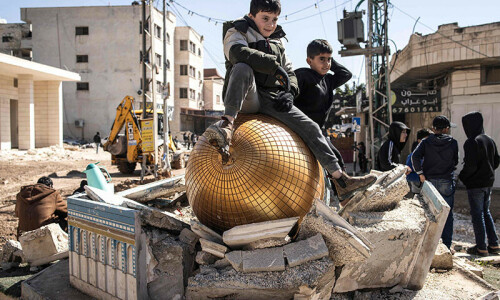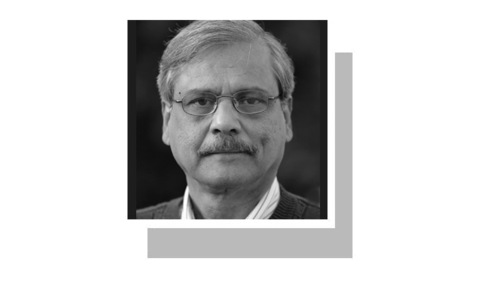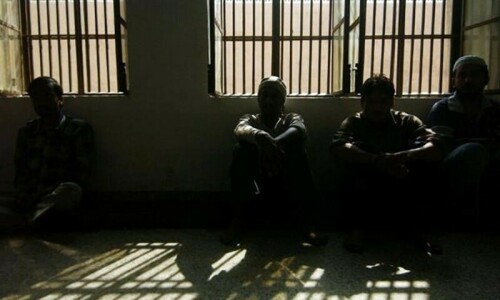NEW DELHI, Dec 17: India and Pakistan on Saturday agreed to begin construction of over $7 billion Iran-Pakistan-India gas pipeline by mid-2007 despite objections from the United States, according to top officials from both countries.
“We have made significant progress. We hope to complete the project by 2,010,” Pakistan Petroleum Secretary Ahmad Waqar told media people on Saturday after bilateral talks with officials from India’s oil ministry in New Delhi.
The proposal to build the pipeline has been on the drawing board for years but uneasy relations between Pakistan and India prevented any progress.
Indian officials are also concerned that the project will take gas across volatile areas of Pakistan where other pipelines have been attacked in recent past.
Peace talks between India and Pakistan revived hopes for the pipeline two years ago but the project faces opposition from the United States, which accuses Iran of seeking nuclear arms, funding anti-Israeli militias and stirring militant attacks against US forces in Iraq.
Nicholas Burns, a top official of the US State Department, said last month India had assured the US that any plans to sign energy deals with Iran were ‘years away’ and existed only in the hypothetical realm.
But Pakistani and Indian officials said talks to build the pipeline were progressing well.
“We shall go ahead,” Mr Waqar said when asked to comment on US objections to the project.
His Indian counterpart, Petroleum Secretary S. C. Tripathi, said talks had gained momentum.
“We have made significant progress. We are now talking about details of the project,” he said.
He said the pipeline would initially bring 90 million cubic metres a day of gas, a third of it for Pakistan. The volume would be raised to 150 million cubic metres in three to four years.
Oil ministers from both countries planned to meet in New Delhi in February to review progress on the project, a joint press statement said.
India, Pakistan and Iran would also discuss the project at another meeting in Tehran, also in February, it added.
Pakistan and India agreed that the matter of transit fees from the project would be approached on the basis of ‘international best practice,’ said the statement.
India, which imports 70 per cent of the oil it consumes, is in talks to build gas pipelines from Myanmar, Iran and Turkmenistan to meet growing energy needs of its expanding economy.
Initially, India would draw 60 million standard cubic meters per day (mscmd) from the over 2,100-km pipeline project and ramp it up to 90 mscmd in next 2-3 years while Pakistan would double its off-take of 30 mscmd by 2,013, Mr Waqar said.
The three countries, which till now have been meeting only bilaterally — India has held talks with Pakistan and Iran separately and Pakistan with Iran separately — will for the first time hold a trilateral meeting in February in Tehran.
The meeting will address the issues relating to the project, including an integrated feasibility study, project structure and tri-partite framework agreement.
“The project structure (how the project will be built and operated) and the framework agreement (the agreement between India, Pakistan and Iran on the pipeline) will be finalised by April 2,006,” Mr Tripathi said.
Mr Waqar said a technical sub-working group would be set up to sort out issues like transportation tariff, transit fee payable to Pakistan, system configuration, pipeline route and pricing mechanism. The sub-group would meet on a monthly basis to resolve the issue before the next meeting in early March 2,006, he added.—Agencies















































